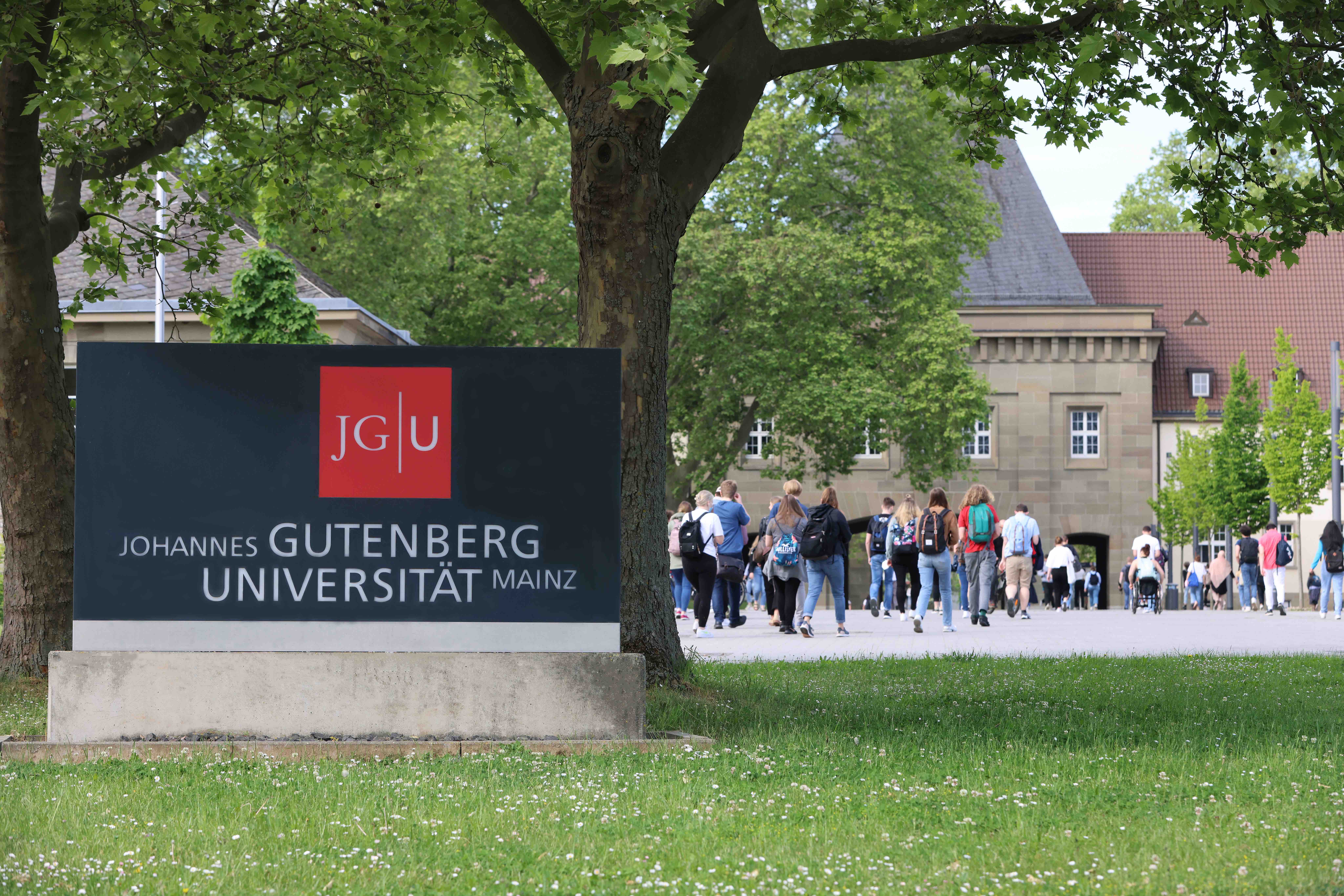
(C) Photo by Alexander Sell
Johannes Gutenberg University Mainz (JGU) is one of the largest and most diverse universities in Germany counting approximately 31,000 students from over 120 nations. JGU unites almost all academic disciplines under one roof. About 4,600 academics, among them about 580 professors, teach and conduct research in over 100 institutes and clinics.
As the only German university of its size, nearly all of the institutions of JGU are located on one single campus near the city center, which is also home to five partner institutes involved in top-level non-university research: the Max Planck Institute for Chemistry (MPI-C), the Max Planck Institute for Polymer Research (MPI-P), the Helmholtz Institute Mainz (HIM), the Institute of Biotechnology and Drug Research (IBWF), and the Institute of Molecular Biology (IMB).
JGU enjoys global eminence as a research-driven university. Excellent placings in national and international rankings as well as numerous other honors and awards demonstrate just how successful Mainz-based researchers and academics are.
The University of Mainz was founded in 1477, closed in 1798 when Napoleon's troops occupied the city, and reopened in 1946 as Johannes Gutenberg University Mainz. The university is committed to the spirit of its namesake: in its promotion and implementation of innovative ideas as well as the use of knowledge to improve people’s lives and to encourage them to transcend boundaries – this is the ambition of Johannes Gutenberg University Mainz.
